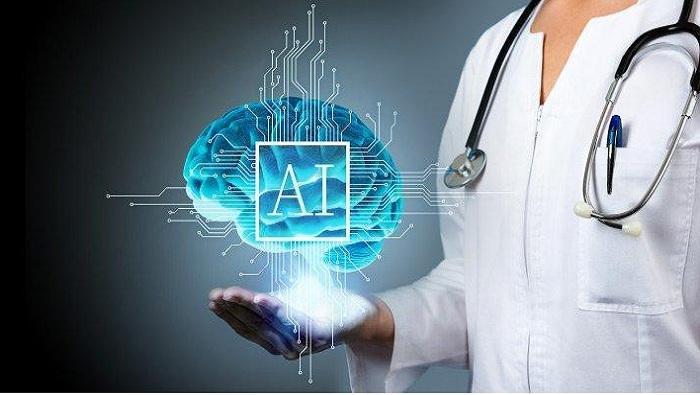The journey of healthcare into the digital era, often referred to as Healthcare 4.0, has brought about profound changes in how health data is managed and leveraged. Electronic Health Records (EHRs), the digital successors to traditional paper records, have emerged as powerful tools that, when combined with Artificial Intelligence (AI), including Machine Learning (ML) and Natural Language Processing (NLP), have the potential to revolutionize patient care.
Unveiling the Potential of EHRs: In the landscape of modern healthcare, EHRs play a pivotal role by digitizing and centralizing patient health information. Serving as comprehensive digital archives, EHRs encompass real-time data such as medical history, diagnoses, medications, test results, and treatment plans. Beyond being repositories, they act as dynamic instruments. When integrated with AI, EHRs become the catalyst for reshaping healthcare.
Harnessing AI and Machine Learning: Just as AI and Machine Learning are revolutionizing various industries, their impact on healthcare is transformative. AI entails the creation of systems that mimic intelligent human behavior, while Machine Learning involves the development of algorithms that enable computers to learn from data and make decisions. The true strength of AI and ML lies in their ability to process extensive datasets, identify hidden patterns, and learn from these patterns to deliver accurate predictions or decisions.
Unleashing NLP for Unstructured Data: Natural Language Processing (NLP), a facet of AI, amplifies the utility of EHR data. It can extract valuable insights from unstructured text data, like clinical notes and radiology reports, converting them into structured data for analysis. NLP can automate coding processes, provide real-time decision support to healthcare providers, and analyze patient communications to enhance understanding and responses.
AI’s Potential in Multidimensional EHR Analysis: Healthcare decision-making often involves sifting through a web of complex data points. Physicians interpret various data from tests and patient histories to formulate diagnoses or treatment plans. Here, AI steps in as a game-changer. Its advanced algorithms and computational prowess allow it to analyze hundreds or thousands of data points simultaneously. AI identifies patterns, correlations, and anomalies, offering insights that might evade human observation.
For instance, AI can scrutinize EHR data to identify patterns indicating a specific disease or health risk. It can suggest tailored treatment plans based on a patient’s medical history and current health status. AI’s continuous learning ensures its predictions become increasingly accurate over time, a trait known as machine learning. Deep Learning, a subset of AI, dives even deeper, detecting intricate patterns in medical images to detect diseases or analyze symptoms.
AI-EHR Integration’s Benefits: The fusion of AI and Electronic Health Records is reshaping healthcare by bolstering decision-making and enhancing patient care. It empowers healthcare professionals with robust tools for precise and informed decisions. Here’s how AI enhances healthcare through EHR integration:
- Enhanced Diagnostic Accuracy: AI’s analysis of extensive EHR data aids in precise diagnoses. For complex symptomatology indicating multiple diseases, AI rapidly scans similar records, identifying patterns to suggest a specific diagnosis, reducing misdiagnosis.
- Predictive Analytics: Leveraging historical EHR data, AI predicts health outcomes. It forecasts a patient’s risk of heart disease based on medical history, genetics, and lifestyle, enabling timely interventions.
- Personalized Treatment Plans: AI tailors treatment plans by analyzing EHR data. Unique genetic markers could suggest a cancer patient’s response to a specific chemotherapy type, enhancing treatment effectiveness.
- Efficiency and Cost Reduction: Automating administrative tasks such as coding and billing, AI reduces the strain on healthcare professionals, yielding cost savings.
- Improved Patient Engagement: AI analyzes patient communications in EHRs, addressing concerns and enhancing patient satisfaction.
- Risk Stratification: Evaluating EHR data, AI classifies patients by disease risk, aiding practitioners in prioritizing high-risk patients and providing preventive care.
- Enhanced Research Capabilities: AI’s analysis of EHR data uncovers trends in illness prevalence, treatment efficacy, and more, potentially leading to new discoveries.
- Real-time Decision Support: AI assists providers in real-time decisions by analyzing EHR data and offering recommendations based on medical history and recent research.
The Future Unveiled: As healthcare embraces the synergy of AI and EHRs, the potential for advancement becomes boundless. This integration enriches patient care, accelerates diagnoses, and refines treatment plans, marking a paradigm shift in the healthcare landscape.
Singh, an esteemed leader in analytics and data science, currently serves as Health Information Manager at Elevance Health. With a fervor for advancing Artificial Intelligence (AI), Singh is dedicated to shaping the future of healthcare.




